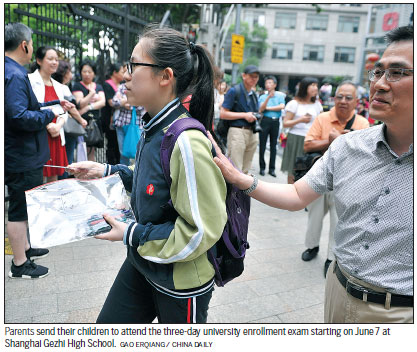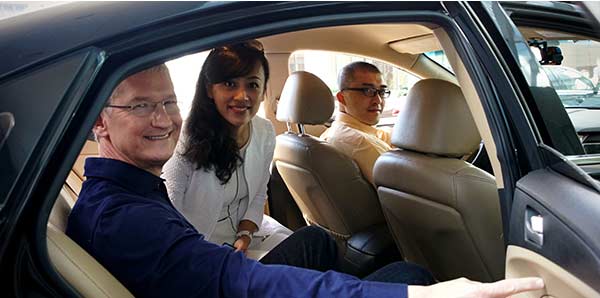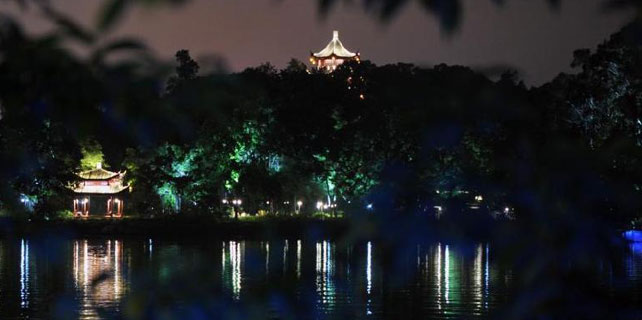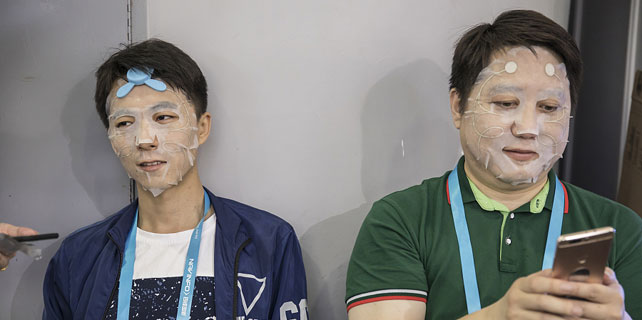City clamps down on noise for national college exam

Shanghai's authorities have implemented a series of measures to ensure that the high school students in the city have as peaceful as possible an environment to think during the national college exam, also known as the gaokao, which is taking place from June 7 to 9.
This year, a total of 51,000 students sat for the examination at 99 spots across Shanghai.
The measures include prohibiting construction sites from operating at night, dispatching police patrols to every district to deter drivers from honking, enforcing noise control at entertainment venues and convincing the city's famous "dancing grannies" to take strolls instead of strut their moves to blaring loudspeakers in the neighborhoods.
The Educational Examinations Authority even went to the extent of factoring in the occurrence of thunder when planning for the English listening test that took place on June 8.
Wen Tiehui, vice mayor of Shanghai, said on the first day that everyone in the city should work to ensure the exam goes smoothly, considering how important it is in deciding a student's future.
Today, although university education has grown from being exclusive to accessible, with admission rates rising from 5 percent to up to 80 percent, the exam still remains as stressful an endeavor as ever for both students and their parents.
This year, Shanghai and its neighboring Zhejiang province allowed students to take the exam on minor subjects twice before picking the higher score as their overall gaokao grade. However, students only get one shot at the three key subjects - Chinese, English and mathematics.
The magnitude of the event has also spawned business opportunities. For example, hotels located near the examination sites have been leasing rooms by the hour for students and parents.
Many parents would prefer for their children to stay close to the exam venues in order to avoid potential traffic problems.
This year marks the 40th anniversary of the gaokao since it was reintroduced in 1977 following the end of the "cultural revolution" (1966-76). Some 5.7 million across China took the exam that year.
xujunqian@chinadaily.com.cn
















